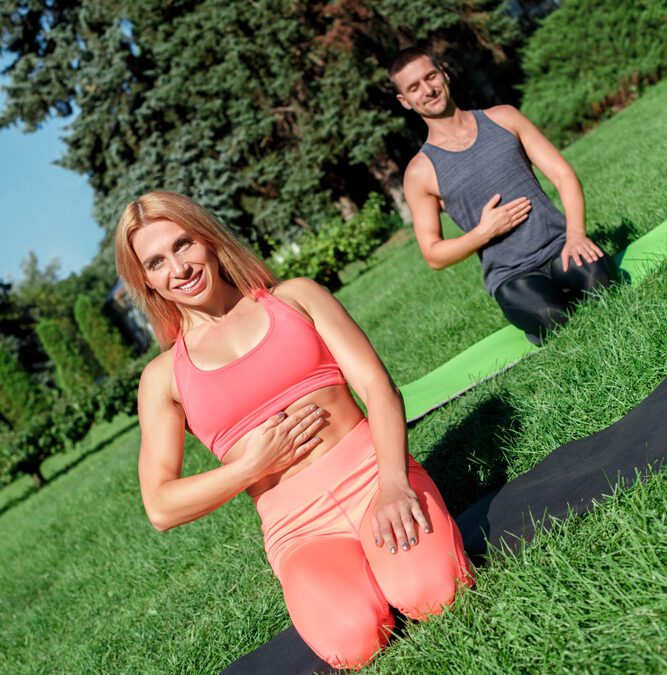Do You Have Anxiety?
You may not know this about me but, it took me 3 attempts to pass my physical therapy licensing exam. I call it my year of hell. I didn’t know I had test anxiety which was causing me to forget to breathe. My thoughts of fear for the exam were not letting me take regular breaths. A psychologist figured it out and taught me the importance of deep breathing for anxiety, and how to use visualization techniques. I passed my test finally! His recommendations made sense because I was already using meditation and practicing yoga. I just didn’t put them to use before and during my exam.
Are you a shallow breather? Do you have anxiety? Do you experience fear? Of course, you do! We all experience shallow breathing, anxiety, and fear at some point. Remember when you couldn’t find your keys and you were late for work? Or when you got a phone call with terrible news?
Evidence to support Deep Breathing for Anxiety
There are plenty of evidence-based reasons for using deep breathing for anxiety, but I will just touch on the three most important ones that you may not know about:.
- It frees up the diaphragm. The diaphragm is a dome-shaped muscle sheet. It separates the heart and lungs in the chest from the abdominal organs. To find it, place your fingers where your ribs meet below your sternum. Now run your fingers underneath your ribs all around the rib cage. When you take deep breaths in, your lungs expand and the diaphragm dives down into your belly, reversing the dome shape and massaging your abdomen. When you exhale, the diaphragm goes back up into the chest to support the heart and the lungs. This is an actual pumping mechanism that keeps your gut from locking down. The intestinal system makes all of our neurotransmitters (chemical messengers that tell us how to feel). If your gut is on lockdown because your breaths are too shallow then your brain is getting messages to increase the stress hormones, cortisol, and adrenaline.
- It releases the Vagus Nerve. When the diaphragm takes this dive into the belly it releases severe pressure on one of the most important cranial nerves that touches almost every organ in your body, the Vagus Nerve. This nerve (there are actually two nerves) controls the fight /flight/freeze response by reminding the brain to relax also called, “Rest and Digest” (parasympathetic nervous system). When you breathe in and out deeply, you’re allowing the Vagus Nerve to be free to do its work, creating peace in the valley 🙂
- It changes your body biochemically. When you feel anxious, your blood (the place where cells are floating around) changes biochemically with increased cortisol and adrenaline. The cells are affected by this increased stress. How do you bring these stress hormones back down? You guessed it! Deep breathing for Anxiety!
How to practice Deep Breathing for Anxiety
There are a couple of ways to practice deep breathing (also called diaphragmatic breathing). I’ll share a simple version commonly called “Belly Breath”:
- In a sitting position, place hands above and below the belly button.
- Inhale slowly through the nose for 5 counts or more, and feel the belly expanding. If you can only do 2 or 3 counts that is not uncommon. Eventually, the breathing elongates with practice.
- Exhale for 5 counts or more and let the belly button slowly come back in towards the spine. The exhale may be more difficult if you have COPD but, keep practicing because this is an excellent way to free up the lungs and alveoli sacs to enhance the breathe.
- Repeat 10 times – the slower the better. It’s wonderful to do it in the morning when you wake up, before lunch and before sleep; or anytime you like.
Stress will always be a part of our lives but at least we know one easy way to decrease it! For more info on deep breathing for anxiety, check out Dr. Herbert Benson and Jon Kabat-Zinn. Subscribe to my monthly newsletter to receive a video example of the above technique.
With love and health,
Jackie
This blog has been written with love. If it has been of value to you, please share it with all your friends. I am grateful for new subscribers. ❤️
*If you have a story about how deep breathing has benefited you, please share below.*

